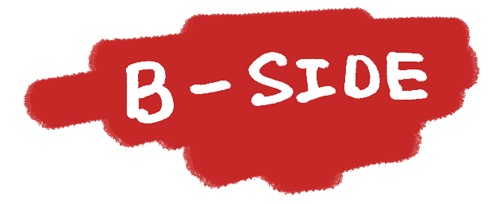Have you used an older Windows PC running, say, Windows XP or 2000 before? You might remember that you had to use an “installer” .exe program to install a piece of software. Larger programs sometimes took hours to install. You absolutely must not disturb the process. One time I did, and the program left zombie footprints all over my disk drive that was almost impossible to clean out. Files would be littered everywhere but the program would only throw errors if you tried to start it. Of course, because the installation wasn’t done. There was no way to “uninstall” it either because, well, the “uninstaller” wasn’t compiled yet.
I have two incomplete installations in my brain. The Chinese language. And the English language.
It first occurred to me that my confidence in my mother tongue was no longer justified when I visited China after spending my first four years in California. There were expressions I knew perfectly how to articulate, and as I fluently layered one sentence upon another, I’d suddenly hit a nasty speed bump, a hit of silence that gives me a small identity crisis every time. The word lacked a Chinese equivalent. Not because it was untranslatable, but I just never learned that concept before I moved to the states.
The fourteenth year is a formative one, and so are the years that come after. My Chinese language installation was abruptly stopped. And in its place, a completely different language resumed its role, but did not supplant it completely.
People looked at me aghast when I didn’t know something that a six-year-old American kid does. “What kind of childhood did you have?” Their eyes were more honest. “One where I can’t even write with Chinese characters, because some of those names only existed in a dwindling dialect.”
It did not get better either. Year after year, I accumulated more knowledge and expressions in the English language, without ever knowing the equivalents in Chinese. To date, I still can’t pair up the names of fish I eat even though I’m familiar with all of the individual words. Is “catfish” 鳕鱼 or 鲈鱼? I don’t know, but I’ve eaten all of them and am confident that it’s not “猫鱼”. Last week, I sent out calendar invitations as a 28-year-old adult titled “greet and meet.” If Kelsey didn’t point it out, I’d probably gone for another ten years using it while people politely ignore my odd expressions.
I started learning English with English a few years after settling down here. It was a big linguistic milestone for me. Instead of relying on translations, it freed me from Chinese constructs and lit up a new circuit of thinking. But as the two languages grew apart, I got farther and farther away from the culture that I used to breathe like air. If I were a piece of software, I’d no longer be backward compatible.
How do I say “density” or “gender-neutral bathroom” or “cross-functional collaboration”? I don’t know. Is “坦率” the same thing as “forthcoming”? Sounds like it. While I know that “底片” is “film negative,” I’m not sure how to say “film advance lever.”
I continue to struggle to explain my life in front of my relatives. But hopefully, word by word, I’ll painstakingly stitch the two worlds back together one day.
